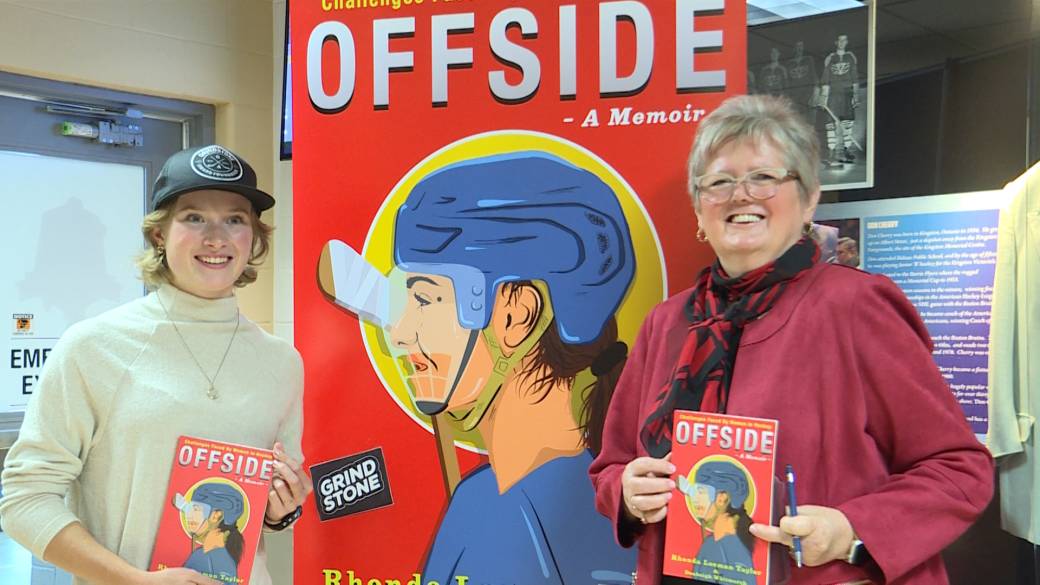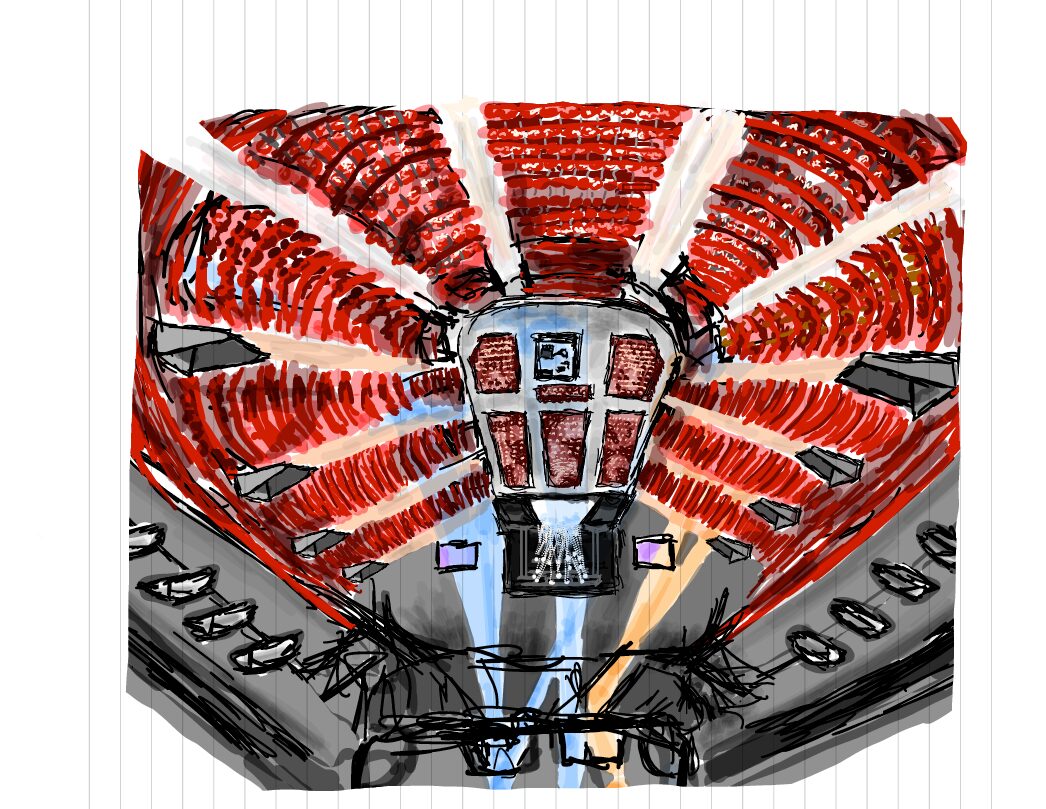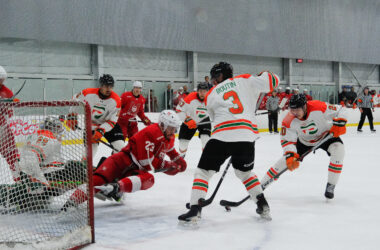Third-year French Literature major and author Denbeigh Whitmarsh has always had strong opinions about women’s hockey.
Two summers ago, Whitmarsh’s great-aunt—and women’s hockey pioneer—Rhonda Leeman Taylor asked for help writing a memoir. Taylor organized the first Women’s Canadian National Hockey Tournament in 1982 and was the first woman to sit on the board of the Canadian Amateur Hockey Association.
“She knew it was special, what she was doing way back in the ’70s and ’80s,” Whitmarsh said. “She’s always wanted to write a memoir.”
Taylor and Whitmarsh self-published the memoir, titled Offside, on Oct. 5. The pair spent the summer of 2018 looking through a box of memorabilia with articles and photographs from Taylor’s time on the ice. Because Taylor suffers from focus problems due to a career-ending spinal injury in 2004, Whitmarsh wrote most of the book.
“I made notes of everything and then organized those notes into chapter ideas,” Whitmarsh said. “I’d call my aunt, and she would tell me all these stories about what happened, and who was who, and how everything went down [….] Writing a book and publishing it in four months is quite a task, but […] we made it happen.”
With recent developments in women’s hockey, Whitmarsh believes that Offside was written at just the right time.
“It’s a critical time for women in hockey currently, because of the media attention that is being received following the folding of the [Canadian Women’s Hockey League] and the creation of the [Professional Women’s Hockey Players’ Association] and the Dream Gap Tour,” Whitmarsh said. “[It’s] allowed us to start a widespread conversation about the discrimination that still exists at multiple levels, and what we need to do to move forward.”
Despite the fact that women’s hockey has been around for over 100 years, Whitmarsh found that there was often very little information to work with.
“I think the most challenging part [about writing the book] was that there was a lack of documentation for that era,” Whitmarsh said. “Being in History [at McGill], I was looking for everything to back up what [Taylor] said, […] but I couldn’t find anything. That […] itself [speaks] to the discrimination.”
As Whitmarsh researched the era, she found surprising stories about what women like her great-aunt faced. Worries that women might get breast cancer from getting hit in the breast with a puck had to be dispelled by studies. Dozens of girls, like Olympic runner Abby Hoffman, secretly played on boys’ teams and were kicked off and even taken to court when they were discovered.
These stories profoundly affected Whitmarsh as an athlete.
“I wanted to play hockey, I wanted to be a part of that, but I knew that I couldn’t because I was a girl,” Whitmarsh said. “It wasn’t until I was 12 that I started playing in a girls’ house league in Uxbridge, [Ontario] […] and I was like, ‘Oh, I can play hockey too. It’s not just for boys.’”
Although Whitmarsh only plays the occasional pickup game of hockey nowadays, she is still heavily involved in athletics, running cross-country and track for McGill and training for triathlons in the summer. She knows that she will keep playing after she graduates next spring.
“I’m a sports person for life,” Whitmarsh said. “I think I would like to do some longer [triathlons], join another women’s hockey league when I can [….] I don’t know exactly what form it’s [going to] take yet, but I definitely want to continue in some way.”
Whitmarsh, like her great-aunt and generations of female hockey players before her, found ways to continue to play the sport she loves despite the world telling her she that couldn’t. Her exploration of women’s hockey’s not-too-distant past strengthened her beliefs in equality and the importance of strong female role models.
Offside is available in ebook and print forms on Amazon, at Chapters, and in other libraries and bookstores across Canada.










Can’t wait to read!